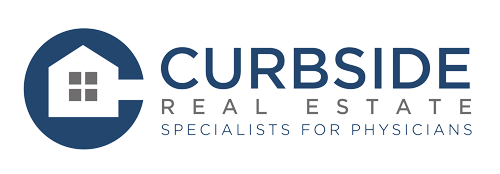With Physician Loans, Can a Dentist, Pharmacist, or Lawyer Apply?

While physician loans are used primarily for physicians, podiatrists, and optometrists, some lenders have loan programs that are available for lawyers, pharmacists, dentists, and professionals working in other industries.
Here are a few details about physician loans, the application steps, and how these loans differ from conventional (traditional) loans.
What Is a Physician Loan?
While making a high salary and building a practice should be your goals, new graduates have a lot of concerns. You may have heavy student loan debt that comes due a few months after graduation and these amounts can range from $140,000 to $260,000, depending on whether you attended medical, dental, pharmacy, or veterinary school.
When it comes to housing, you want to receive as much help as possible to ensure your loan debt isn’t held against you. Conventional banks view student loan debt in a bad light and it can affect the amount of money you can borrow, counting as 1% of the loan amount.
Student loan debt can also affect the interest rate you get, making it much higher. But, that’s why there are physician loans, a convenient way to tap into loan money that’s allocated for those working in medical professions.
If you work as a physician, you may have heard about physician loans. These are special portfolio loans for medical professionals. You don’t even have to be a doctor (DMD) to apply for these types of loans. They are available to podiatrists (DPM), optometrists (OD), and those practicing osteopathic medicine (DO). Physician assistants and veterinarians can also apply.
Lawyers, dentists, and pharmacists may/may not be eligible. Contact Curbside Realty to see if you can apply.
For mortgage loans for dentists, veterinarians, and lawyers:
Dentists
For physician loans for dentists, contact BB&T, Bank of Nashville, SunTrust, Huntington, BBVA, Citizens Bank, Flagstar, Compass, and Certus Bank.
Pharmacists
For pharmacists, contact Huntington, Fairway, and Flagstar.
Lawyers
For lawyers, contact Flagstar and BBVA.
A Physician Loan Process Is Preferred
Why is a physician loan important? When you’re ready to graduate or start a new practice, you may not have time to find a realtor and wait on the lengthy loan process.
With traditional mortgages, the closing process can take several weeks. Potential home buyers have to “prove” that they can afford a mortgage and will make their payments on time.
Physician loans are available as a concierge service for physicians to take the stress out of the home-buying process.
With physician loans, you can receive:
- Fast loan approval for your first home or refinanced property.
- Assistance with finding a new home to allow you optimal time to focus on patient care or a new practice.
- Help with finding realtors who cater to medical professionals and are carefully vetted.
The Traditional Loan Process: Time-Consuming and More Money Down
The conventional loan process can require extensive amounts of paperwork, and for someone with a relatively new credit history that can mean that they may have to put more money down as their down payment.
Typically with mortgage applications, the person may put down 10% up to 20% of the mortgage. This is to secure the loan and reduce the amount that will be due.
The Physician Loan Process: Faster Loan Approval and 0 to 5% Down
New physicians and other medical professionals can bypass the lengthy loan process. Physician home loans “push through” loan applications because of the higher expected salary and future earning potential in the medical industry.
Physician loans are preferred and differ from conventional loans because:
- You don’t have to pay private mortgage insurance (PMI) with physician loans. With traditional loans, if you don’t put down 20%, you have to pay PMI.
- With your student loans, student loan debt is factored in differently. With traditional loans, it’s automatically calculated at 1% of the loan amount.
- While traditional loans require up to two years of employment verification and tax records, with physician loans, your acceptance letter at a new hospital or practice is all you need.
- Traditional loans require cash reserves in the event of an emergency. This is not required with physician home loans.
- Physician mortgage loans work with a realtor network. These realtors make you a priority.
When you may only have a few weeks to move before starting a new position, physician relocation assistance and a smoother loan process can ensure you have all the help you need with the home-buying process.
Conclusion
Finding a new home can be a stressful time, especially for those in the medical profession. To avoid this, tap into the concierge services that are available for medical professionals with Curbside Real Estate. The closing is simplified, helpful realtors await you, and bankers can expedite your loan application. That way you can focus on what matters: patient care and starting your new practice!
